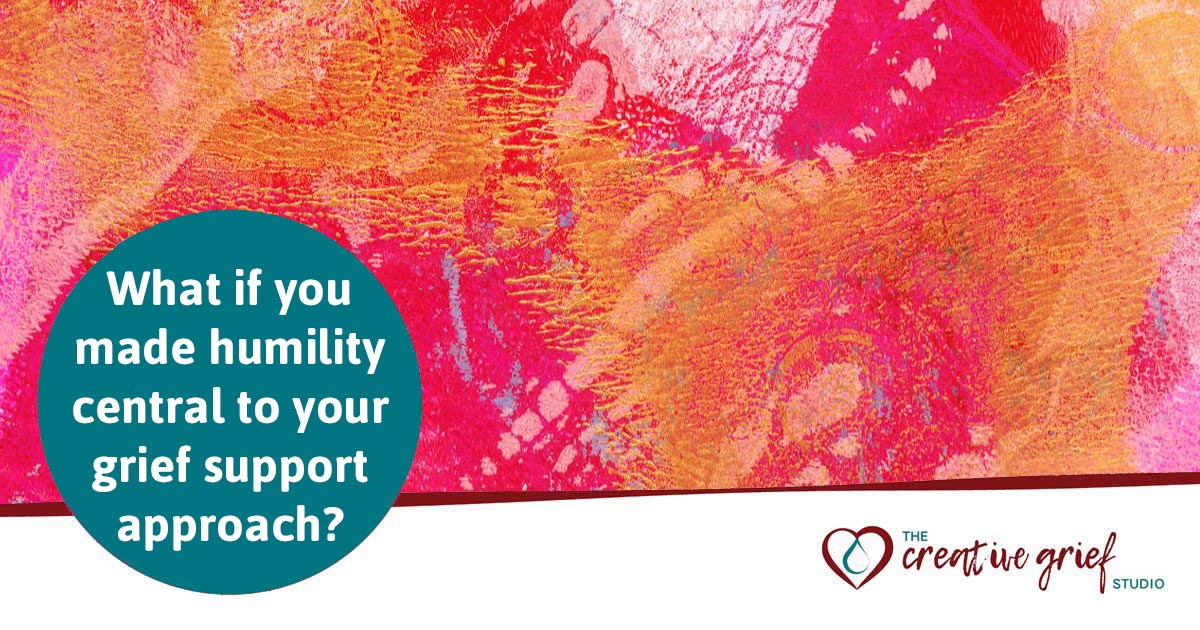“Narrative humility allows clinicians to recognise that each story we hear holds elements that are unfamiliar – be they cultural, socio-economic, sexual, religious, or idiosyncratically personal. Assuming that our reading of any patient’s story is the definitive interpretation of that story is to risk closing ourselves off to its most valuable nuances and particularities.” (DasGupta, 2008, p. 981)
We don’t know about you, but we’ve not come across many discussions about “humility” in the professional training of Social Workers, Psychologists, Clergy, Life Coaches, and other helping professionals. (If you did have discussions about the importance of humility in the course of your training, please be in touch! We’d LOOOOOOOVE to hear about it!)
The all-knowing “professional”
Instead of being taught to embrace mystery and to explore what it could mean to make humility central to our grief support approach, we’re trained into the idea that “professionalism” means knowing lots, having answers for all the questions, and even having some special ability to see beneath our client’s actual words, so that we can tell them what their words and behaviour “really” means (according to all those textbook theories we were taught about).
What a huge pressure that would put on us, if that’s what we’re supposed to do! And wow, we’d better have our own shit sorted out, if we’re going to accept the responsibility of being this kind of “professional.”
Re-member the depths of grief
Do you have a significant grief experience of your own that you could call to memory now? Do you remember that feeling that all you knew had been shattered when the loss happened? Our clients, in the depths of grief, are so often in that space of doubt, confusion, unable to trust their own thoughts and feelings, and questioning everything they thought they knew. Their “assumptive world” (as the literature calls it) has been smashed to pieces, and they’re left, smack in the middle of “I don’t know.”
When you were deep in grief and not knowing, what was it like for you when people offered you advice, or seemed to be so sure of themselves, and so sure and secure in their world and their assumptions about their future?
What if …?
What if we take the focus off trying to know and make known, in order to go forward together, and instead focused on feeling what it feels like to not know? And then working on figuring out what makes not knowing difficult? What skills do we use when we have to navigate not knowing? How could we get more comfortable with not knowing?
What could it be like for our clients, if we could dissolve our own anxiety about not-knowing, so that we could offer a non-anxious relationship and space within which they could explore their doubts and fears, develop their confidence to live in the mystery, and feel supported to go forward and create their own meanings within it all?
What could it look like if we made humility central to our grief support approach? How do you practice humility in your grief support work, and how do you see that being of value to you and to your clients?
If you are interested in exploring this approach more deeply, join us for our next Certification In Creative Grief Support session!

